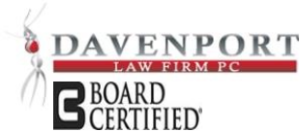INSURANCE CODE VIOLATIONS / BAD FAITH
 Weather is unpredictable– especially in Texas. When hail and wind are involved, damage to a roof can happen. Dime sized and golf ball sized hail can cause severe impact damage to your shingles. It’s like striking your shingles with a hammer over and over again. When this happens, water enters through the impact locations or your shingles can break loose from each other allowing water through the building envelope. Your roof is now compromised.
Weather is unpredictable– especially in Texas. When hail and wind are involved, damage to a roof can happen. Dime sized and golf ball sized hail can cause severe impact damage to your shingles. It’s like striking your shingles with a hammer over and over again. When this happens, water enters through the impact locations or your shingles can break loose from each other allowing water through the building envelope. Your roof is now compromised.
Similarly, wind can cause shingle separation and loss of adherence of the shingles. If a shingle blows off of your roof or your roof becomes hail damaged, this must be remedied as soon as possible. Wind also frequently causes damage to flashing allowing water penetration.
It is important that your insurance company understands when and how the damage to your roof arose. Be clear that the wind or hail storm caused the damage. Our firm has worked with many commercial property owners and homeowners over the years, involving underpaid or wrongly denied insurance claims. The damage from hail and wind can be made worse when an insurance company treats their insured unfairly or violates their duties of good faith and fair dealing.
 Insurance companies have a duty to act with “good faith and fair dealing” toward their policyholders. This means your insurance company is required to pay or deny your claim within a reasonable period of time, respond to your inquiries in a prompt manner, cooperate with you with regard to resolving your claim, and provide written notification the reasons why it is reducing or not paying your claim. Insurance companies act in bad faith by failing to honor legitimate claims or wrongfully denying life insurance or disability insurance benefits. They may inadequately investigate a claim, or delay investigation, fail to pay or delay paying a valid claim, treating the insured as an adversary, deceive or evade insured’s questions, conceal facts, or show a pattern of denying all claims. Despite Texans paying millions upon millions of dollars annually for insurance premiums, those companies often seek ways to deny that insurance coverage.
Insurance companies have a duty to act with “good faith and fair dealing” toward their policyholders. This means your insurance company is required to pay or deny your claim within a reasonable period of time, respond to your inquiries in a prompt manner, cooperate with you with regard to resolving your claim, and provide written notification the reasons why it is reducing or not paying your claim. Insurance companies act in bad faith by failing to honor legitimate claims or wrongfully denying life insurance or disability insurance benefits. They may inadequately investigate a claim, or delay investigation, fail to pay or delay paying a valid claim, treating the insured as an adversary, deceive or evade insured’s questions, conceal facts, or show a pattern of denying all claims. Despite Texans paying millions upon millions of dollars annually for insurance premiums, those companies often seek ways to deny that insurance coverage.
“Insurance bad faith” is a legal term or art that describes a tort claim that an insured person may have against an insurance company for its bad acts.
Many insureds are unaware that their insurance companies owe a high duty of care to their insureds, which is known as a fiduciary duty. Nevertheless, insurance companies engage in practices that result in wrongful denial of claims. They thrive on searching for loopholes in the policy that give the insurance company a technical way of avoiding payment, and many times affirmatively breaching contracts or intentionally abusing their power to bully policy holders into taking what the insurance company is willing to pay rather than what should be a fair settlement of the claim.
Denied insurance claims can be extremely frustrating, especially if your insurance company has a history of denying claims in bad faith. Since the insurance industry is undergoing constant changes, it is important to have an experienced and knowledgeable attorney on your side. The lawyers at Davenport Law Firm are dedicated to aggressively representing our clients’ rights when a claim has been denied wrongfully or in bad faith. Our lawyers handle insurance bad faith matters in a range of areas for clients located throughout the State of Texas.
What is Bad Faith?
We can help you in your battle against the insurance companies. Some of the types of insurance coverage that are subject to denials in bad faith include:
- Life insurance
- Fire insurance
- Auto insurance
- Disability insurance
- Property Coverage
- Homeowner Coverage
Some insurance companies look for exclusions or other ways to deny or delay your claims even if you can demonstrate your claim was within the coverage of your policy. Our firm is dedicated to assisting clients when dealing with their insurance companies to obtain compensation for the insurance bad faith practices they have experienced.
